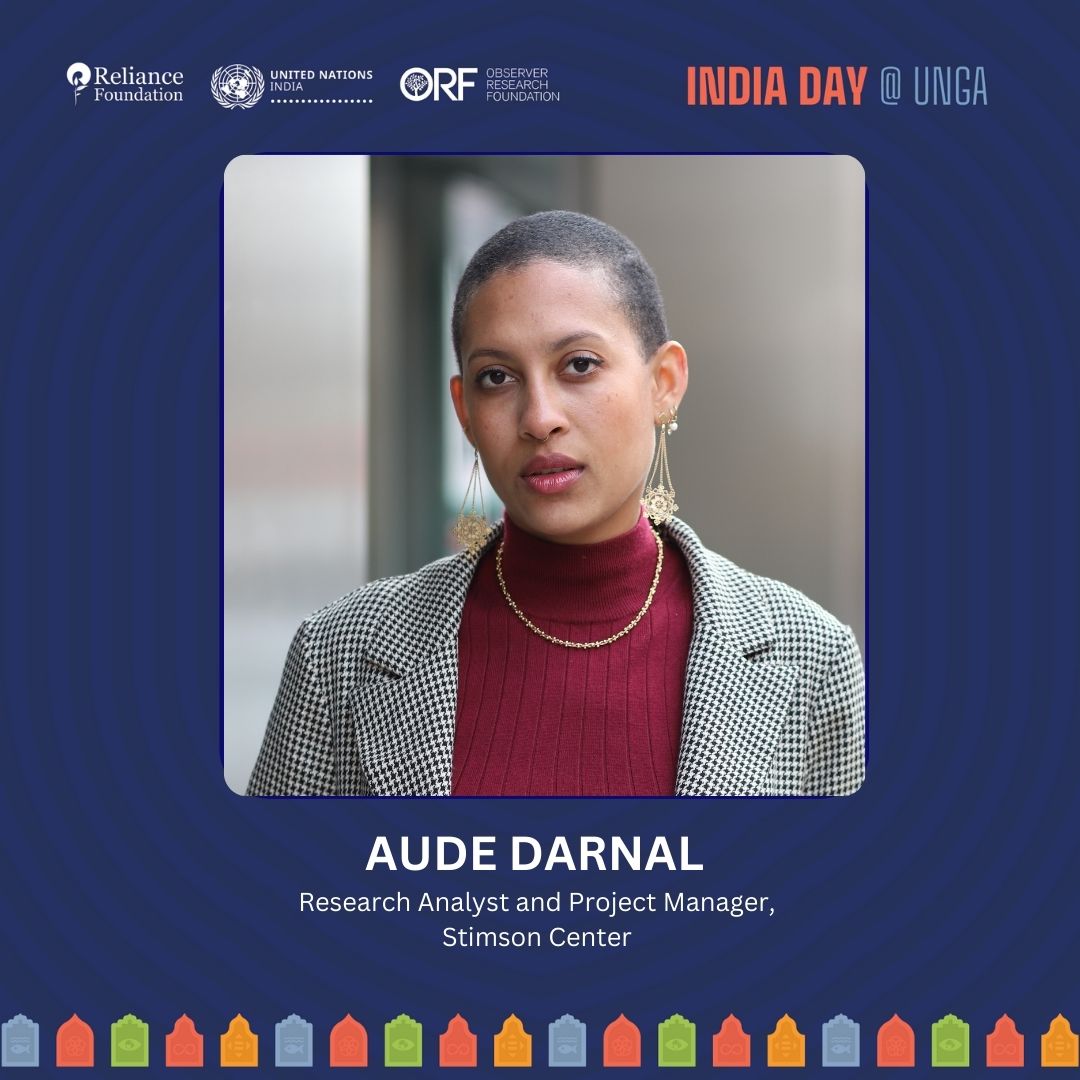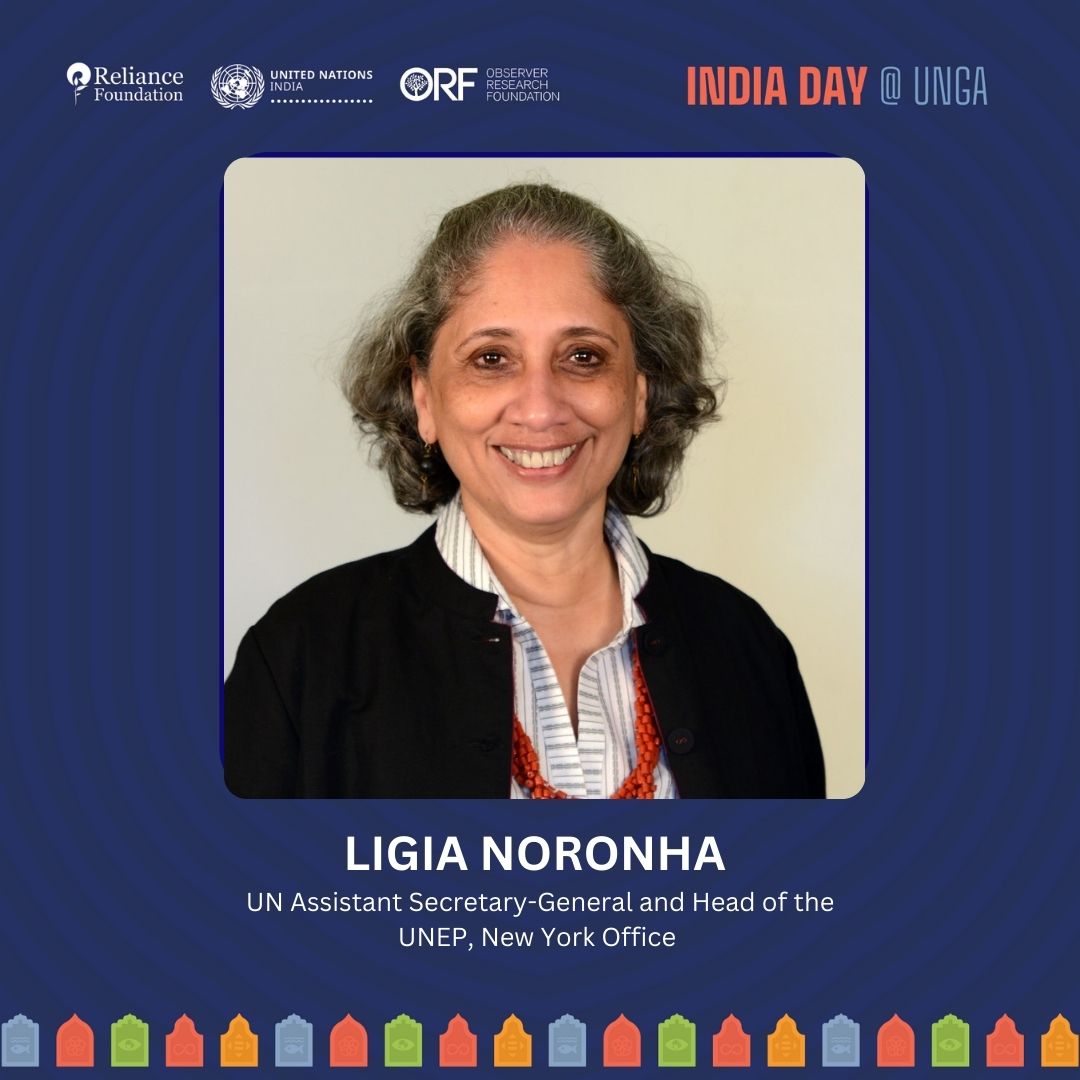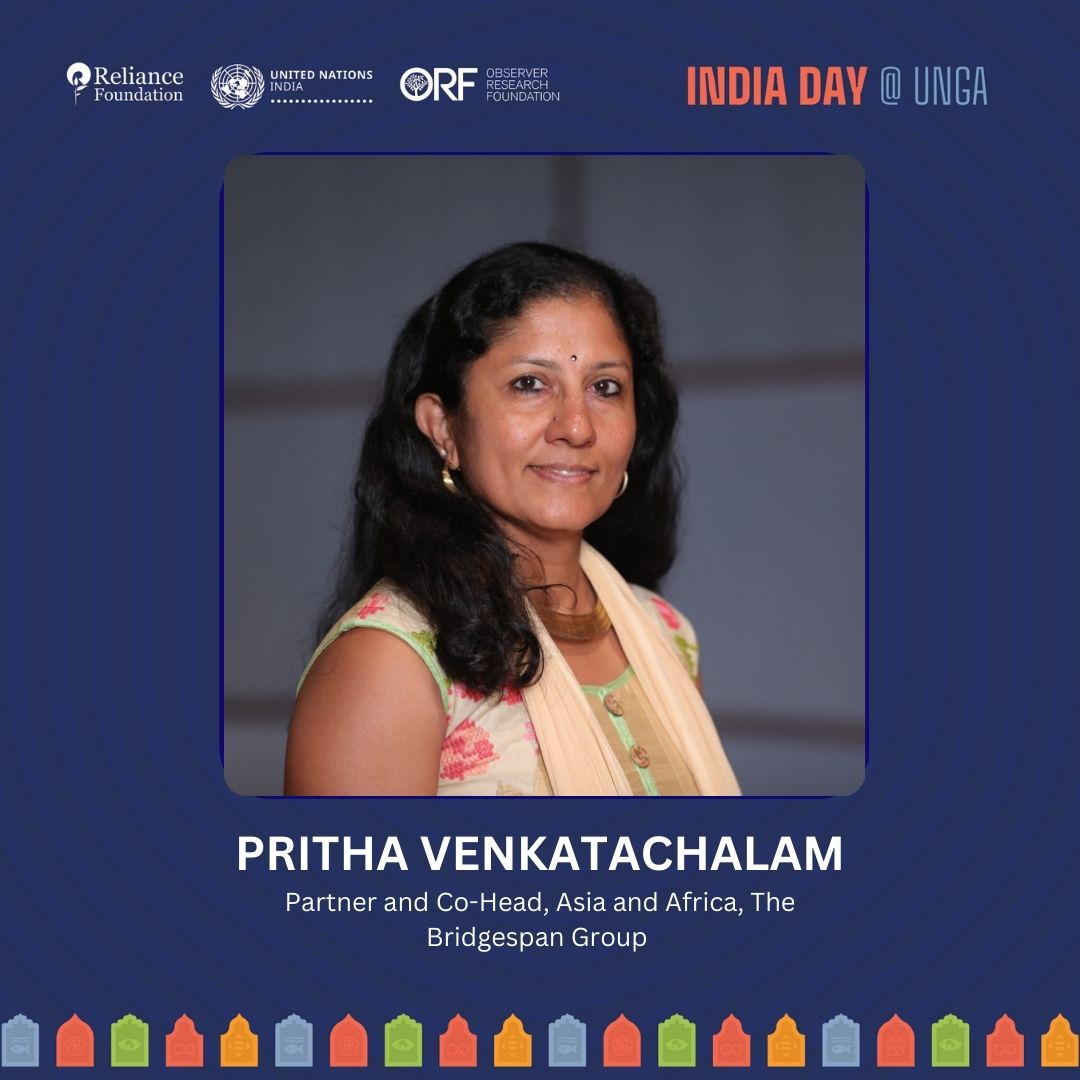
India Day @ UNGA: Crafting a bold vision for sustainable development beyond 2030
As the world gathers for the 79th session of the United Nations General Assembly in New York, Reliance Foundation, Observer Research Foundation (ORF) and the United Nations in India are hosting India Day @ UNGA on Wednesday 25th September.
Over the past three years, Reliance Foundation has been building momentum for dialogues, innovations and ideas from India and the region during the UNGA week, for greater momentum towards the Sustainable Development Goals and beyond, while also showcasing best practices and case studies from the region. This year’s ‘India Day @ UNGA’ sessions take another step forward to shape the agenda for the future, with bolder vision and voices.
India Day @ UNGA in the morning of 25th September 2024 (EST) will focus on India’s leadership in fostering inclusive growth, building resilience, and ensuring sustainable progress while helping craft a collective South-led vision for sustainable development beyond 2030.
The event includes four panel discussions, each addressing a theme related to the next stage of development, including experiences from India and the Global South; the role of technology in accelerating inclusive growth; the importance of women’s leadership for equitable development; and the concept of sustainable lifestyles, resource efficiency, and circular economy.
Session 1 | To the Lighthouse? Promises and Pathways for the Rising South
The Global South's demographic dividend and increasing cooperation are driving a new era of development. India's successful initiatives have sparked interest among other Southern nations. This panel will discuss how historical contexts influence development strategies, the potential of South-South partnerships, and India's experience in delivering public services at scale. By sharing knowledge and experiences, the Global South can overcome systemic challenges and create a more balanced development landscape.
Session 2 | Technology Transforming Lives: Accelerating Towards an Inclusive Digital Ecosystem
The digital revolution offers opportunities for inclusive development in the Global South. AI and other technologies can address language barriers, improve education, healthcare, governance, and livelihoods. However, countries must design inclusive programs to avoid widening inequalities. India's digital public infrastructure and fintech innovations demonstrate the potential for economic empowerment and better governance, especially for marginalized communities. Lessons from Kenya and Bangladesh highlight innovative solutions for integrating underserved populations into the digital ecosystem. By leveraging these strategies and cross-learning, the Global South can harness digital technologies for sustainable development and economic growth to benefit the most vulnerable communities. This session will explore lessons from India's tech-led transformation, strategies for addressing the gender digital divide, ways to accelerate digital financial inclusion, and the need to equip youth with necessary skills for the future.
Session 3 | Power of Women-Led Development: Femme Forward for the Future
Countries are making progress toward gender-responsive futures. Women leaders are driving change and contributing to economic growth. India played a key role in promoting women-led development during its G20 Presidency. This session will discuss how to increase female representation in leadership roles, integrate women-led development into the post-2030 agenda, and address the gender gap in the care economy.
Session 4 | Exploring a New Development Paradigm: Reference to LiFE Economy
The G20 endorsed the concept of LiFE (Lifestyle for Environment) under India's presidency. LiFE Economy is seen as a roadmap for sustainable development, including sustainable consumption and production, reoriented development finance, measuring wellbeing beyond GDP, social enterprises, and ethical economic systems. This session will explore broader policy perspectives for a new development paradigm based on LiFE Economy.
Our esteemed speakers

























